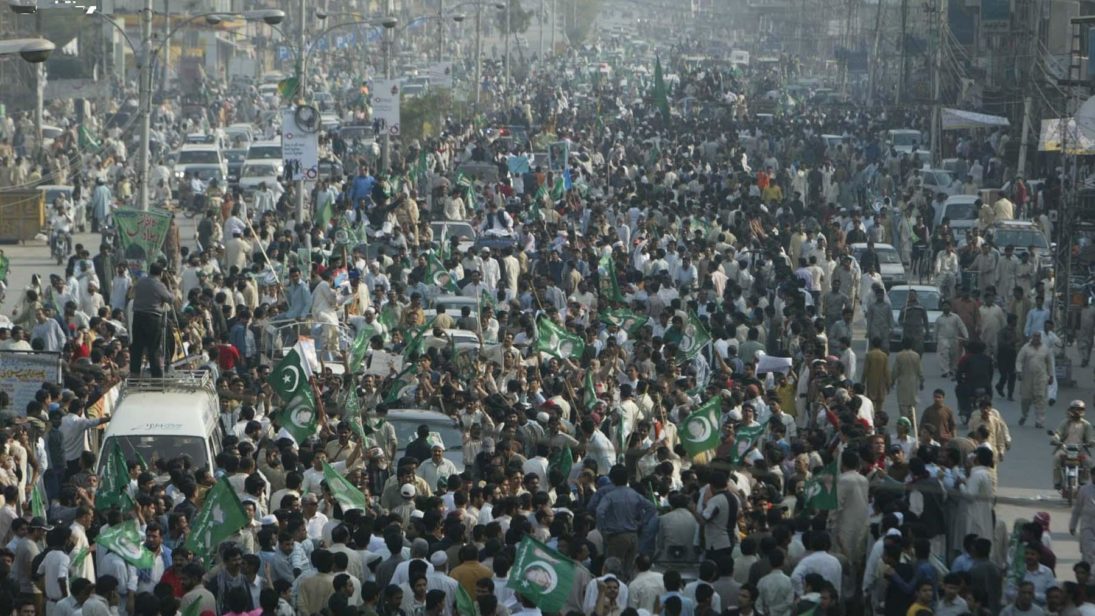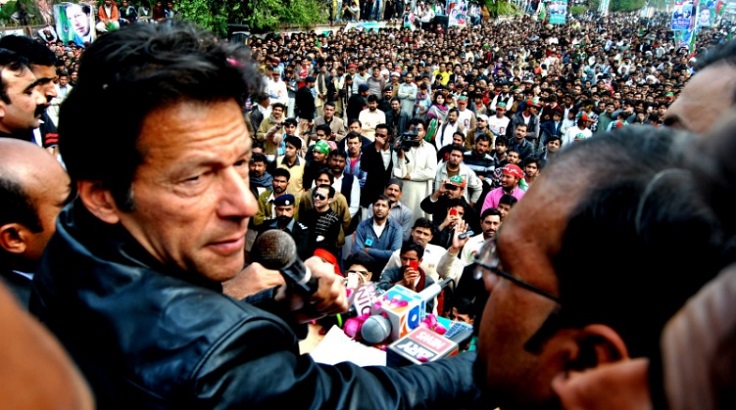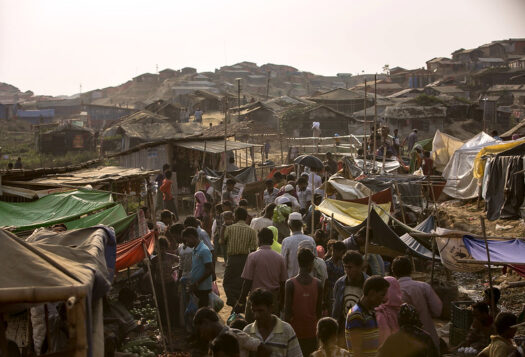
In Pakistan, both the establishment and ethnic, nationalist, religious, and regional parties have played important roles as kingmakers, helping shape electoral politics, and will continue to do so in the upcoming general elections. Provincial strongholds are also an important factor influencing elections, as is evident in Punjab—the electoral success of the Pakistan Muslim League-Nawaz (PML-N) in the 2013 elections can be attributed to its winning a majority in Punjab. However, with independent candidates gaining a foothold in the recent senate elections, their influence and potential to impact the results of the 2018 elections is becoming increasingly undeniable. Due to a possible coalition between the two biggest opposition parties, Pakistan Peoples Party (PPP) and the Pakistan Tehreek-e-Insaf (PTI), as well as disqualification of important PML-N affiliates such as former Foreign Minister Khawaja Asif, the prospects of the PML-N making a comeback in 2018 don’t seem very high. Following the Supreme Court’s (SC) verdict disqualifying former Prime Minister and lead of the PML-N Nawaz Sharif from office and barring him from contesting elections or becoming a member of parliament again, the ruling PML-N may no longer be the favorite to win the 2018 elections.
Conflict within the PML-N
Interestingly, if by-election results are a measure of popularity, the PML-N has emerged stronger after Sharif’s disqualification and removal as party chief: the PML-N has won several important seats over the last six months. However, observers have attributed these victories to the PML-N already being in power, rather than them being a result of Sharif’s increasing popularity following his rallies for support after the SC verdict. This argument holds credence given that the party has also suffered significant losses since then: in January, PML-N’s Sanaullah Zehri was forced to relinquish his Balochistan chief ministerial seat to a Pakistan Muslim League-Quaid (PML-Q) candidate. During the senate elections, PML-N candidate Zafar-ul-Haq was unable to be elected as Chairman despite a majority in the House. The party’s inability to get its chairman elected has arguably furthered dissatisfaction among its members, as reports suggest that a number of federal and provincial PML-N ministers may have played an important role in Sharif’s ouster as party leader in support of his younger brother, Shahbaz Sharif.
The senate elections have arguably exposed internal weaknesses within the PML-N: before the opposition’s collaboration, the results of the senate election were expected to be strongly in favor of the PML-N. However, this is now hampered by the fact that several important politicians belonging to PML-N, including Sharif’s former Interior Minister Chaudhry Nisar Ali Khan, have indicated that they might contest the general elections as independent candidates. There is also speculation that PML-N candidates who were declared independent by the Election Commission of Pakistan are likely to join whichever party wins the general election, whether it is the PML-N or not. Due to the confusion prevailing over the party’s future, especially in the wake of Sharif’s disqualification and the pending corruption cases against Sharif and his children, a large number of lawmakers have decided to part ways with the PML-N, with some defecting to the PTI. In another major blow, PML-N lawmakers from Southern Punjab have announced the creation of the Janoobi Punjab Suba Mahaz (JBSM) calling for a separate Southern Punjab province, which may lead to further defections. The movement for a separate southern province has garnered the support of opposition parties such as the PTI and the PPP.
Alliances Among the Opposition
Despite the volume of PML-N affiliates defecting to the opposition, the threat from the opposition is currently weak. However, the opposition’s ability to influence the outcome of the 2018 election cannot be ruled out. Even as the PML-N played a role in improving the security situation in the country, its reliance on the military for internal and external security and foreign policy has often been criticized. Notwithstanding the economic strides made during the PML-N tenure, Sharif and his associates have been accused of corruption. Imran Khan may well have lost appeal owing to negative publicity and inability to deliver on promises made during his 2013 campaign, such as tackling terrorism in Khyber Pakhtunkhwa, however, he still remains a formidable challenge for the PML-N. Khan is arguably responsible for the SC’s investigation of the Panama Papers, as he lodged a protest over the Panama leaks in the first place, and regularly challenges the establishment, sometimes working with other opposition parties such as the PPP.

Khan and the PTI have been very vocal about their mission to get the PML-N out of office, and are joined in this mission by much of the opposition: with reports from 2017 suggesting that the ruling PML-N began “tweaking” the system in a way that would benefit it in the 2018 elections, PPP Chairman Asif Zardari warned that his part would be ready for a fight if Sharif attempted rigging the 2018 election. PML-N is alleged to have rigged some polling stations in 2013, with public outcry resulting in re-polling at certain locations. According to a recent Gallup poll only 49 percent of voters believe that the 2018 elections will be free and fair as compared to 61 percent in 2013.
Another significant development which could spell trouble for PML-N is the emerging cooperation between Chaudhry Shujaat Hussain’s PML-Q and the PTI. Hussain’s PML-Q played a critical role as kingmaker for almost a decade during the Musharraf era, as it aligned itself with the then-President, and has reciprocally supported the PTI during the recent senate elections. Likewise, an alliance between the PPP and PML-Q towards a common goal to counter the PML-N is also possible, since the two have shared cordial relations over the past few years.
Re-Emerging Religious Right
Although the Sharif family wields considerable influence in Punjab, the rise of the religious right could create problems for the PML-N. The revival of Muttahida Majlis-e-Amal (MMA), an alliance of religion-affiliated political parties, fronted by the Jamaat-e-Islami (JI) and Jamaat Ulema-e-Islami (JUI), who contested the 2002 elections, managing to attain the third-highest number of votes ahead of the PML-N in parliament, is reason enough for the PML-N to be nervous.
The MMA’s performance during the two previous elections has made religious political parties realize that “there is strength in unity,” hence their decision to form an alliance ahead of the 2018 elections, allowing like-minded parties to attain a majority wherever possible, instead of contesting separately and attaining a smaller support base, as a result. Although growing tensions between the JI and JUI caused the initial rifts within the MMA, it is thought that these parties have chosen to band together in response to the leftist, secular parties’ unwillingness to align themselves with religious parties, and more extremist factions popping up in provinces like Balochistan. The resurgent MMA’s prominence is evident from the NA-120 by-elections late last year, where although Begum Kulsum Nawaz won the election, 11 percent of the total votes went to right-wing religious parties.
Conclusion
In the past, parties including the PML-N, the PML-Q, and even the MMA rose to prominence to challenge the existing status quo. The same could hold true in 2018, where, given present dynamics and in the absence of a behind-the-scenes deal, the upcoming general elections will most likely lead to a hung parliament. In the absence of alliances, it will be a challenge for any political party to form a government in Punjab, where the PML-N has traditionally maintained a stronghold. However, the senate elections suggest that opposition parties may be headed towards forming coalitions in time for the general elections, where religious parties and independent candidates remain important players. In such a fragmented political climate, any major party, be it the PML-N, PPP, or PTI, will need support from smaller regional and religious parties to form a cohesive government. For this reason, it remains to be seen whether the PML-N will be able to retain its status as a frontrunner in the elections.
***
Image 1: Wiqi22 via Wikimedia Commons
Image 2: Pakistan Tehreek-e-Insaf via Flickr


